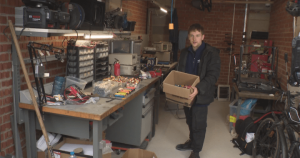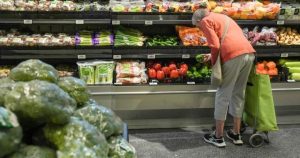Just how rich are Arab rulers?
Unlock the Editor’s Digest for free
Roula Khalaf, Editor of the FT, selects her favourite stories in this weekly newsletter.
It’s no secret that Gulf autocrats control serious cheddar. A (paywalled) report out this month attempts to estimate quite how much.
Totting up the available numbers, Global SWF reckon the Gulf Cooperation Council’s ruling families control around $6.8 trillion of assets. That’s two whole Apples! Click through the chart below to see how this breaks down by state, category and fund:
What do these funds even do with $6.8 trillion? It turns out, at least four things.
First, they diversify their economies beyond the expected life of the reservoir of hydrocarbons upon which the region floats.
Second, they project soft power internationally. Think football, golf, media, universities, maybe even the capture of international professional elites through butlering gigs.
Third, buy garish bling and stroke rulers’ giant egos.
Lastly, they own pretty much everything in touching distance. According to the report, Gulf SWFs own every one of their national champions across every major industry. State capitalism at its most obvious (high-res here):

But it’s not just champions. They also own most of all stocks listed in GCC.
The report’s authors combed through the share registers of each of the 877 companies listed in the region and found that 68 per cent of the Abu Dhabi market cap is owned by local SWFs and royal family offices. In Saudi, a full 77 per cent of the market is owned by PIF and the state. For the GCC overall, 70 per cent of market capitalisation is ultimately state-owned.
Admittedly, much of this is owing to the outsized prominence of the Saudi market in the region, and the outsized prominence of the almost wholly state-owned Aramco. But still:
Hang on, is this a chance for another marimekko moment?!

Despite owning so much of their listed markets, GCC authorities have still made some efforts to get outsiders interested in their stocks. These efforts have had mixed results.
Norway’s $1.7 trillion mega-SWF NBIM divested all its Saudi stocks in 2021. And Norway’s largest domestic pension fund KLP dumped GCC stocks on human rights concerns in 2023. Sweden’s giant pension fund AP7 blacklisted Saudi Aramco — which makes up around a quarter of the region’s market cap — at the start of the year, although this didn’t stop Saudi from selling $11.2bn of stock over the summer, albeit at the bottom end of the range and at a 6 per cent discount to the market. And despite its phenomenal share price growth, IHC (which constitutes around a third of Abu Dhabi’s ADX exchange market cap) mostly just perplexes international investors.
But passive investors? They’re much more enthused. Or, at least, they’ve found their money poured into the region following choices made by the index providers to whom they’ve outsourced investment decision-making. MSCI’s decision to include UAE and Qatar (in 2014), Saudi (in 2019), and Kuwait (in 2020) to its indices has meant anyone committing cash to a MSCI EM or MSCI ACWI tracker fund is buying stocks in the region.
The BIS noted that MSCI and FTSE’s admission of Saudi stocks to their indices in 2019 coincided with foreign equity flows into the country that exceeded those heading to India and China. And MSCI themselves calculate that foreign investment in Saudi stocks has more than quadrupled from $23.5bn to $97.5bn since their index inclusion decision was made.
Somewhat unusually, the study includes Royal Private Offices — a category of state-controlled assets we haven’t seen analysed before. These account for a cool $0.5tn, or about half a Berkshire Hathaway, which sounds maybe less impressive. Almost $350bnof these assets are run for the UAE’s ruling Al Nahyan family alone. But as the authors note:
This group of entities, led by Abu Dhabi’s Royal Group and all its subsidiaries, is even more opaque than SWFs … links to the royal families can make the boundaries between SWFs and RPOs blurry at times.
Given that GCC states are overwhelmingly absolute monarchies, it’s probably not worth getting too hung up over the distinction.
#rich #Arab #rulers








